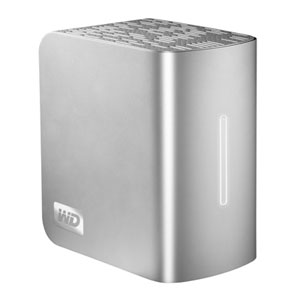
It’s common knowledge that video editors chew through storage space like chainsaws through styrofoam, and storage developer Western Digital is looking to feed that need with a new 6 TB version of its My Book Studio Edition II external hard drive. Aimed primarily at Macintosh users—because, let’s face it, a lot of high-end video editing gets done on Macs—the drive features eSATA and FireWire 800 interfaces, with the capability to drop down to FireWire 400 and USB 2.0 if needed. And while the drives can be easily reformatted to work with Windows systems, that won’t magically make a USB 3.0 interface appear.
“Thanks to advancements in HD video devices including digital SLR cameras and HD video cameras, the quality and quantity of video content being produced by professionals and enthusiasts alike has grown at an astounding pace,” said WD’s VP of marketing Dale Pistilli, in a statement. “The My Book Studio Edition II drive now available with 6 TB of storage provides creative individuals with the expanded storage and bandwidth they need to effectively shoot, edit, and safely store their video productions without the need to compress their videos or reduce the overall quality of them for the sake of available space.”
The drives are available in 2, 4, and npw 6 TB capacities: the latter two only work with Mac OS X 10.5.2 or newer, or Windows Vista or better. The drives are dual-drive units—yes, that means the 6 TB drive is really two 3 TB drives—and sport a comparatively massive case: about six inches deep and tall, and 3.9 inches across. Customers should also remember to leave room for a separate AC adapter. WD touts the drives as consuming a third less power than a standard dual-drive storage system, thanks to (quiet) fanless convection cooling.
The 6 TB version of the My Book Studio Edition II is available now for $549.99.
Editors' Recommendations
- WD My Book Live owners need to act now to protect their data
- Need more storage? This 5TB external hard drive is just $115 today


